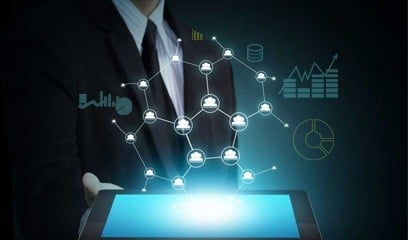
We have been hearing gloom and doom about the LMS for several years, and the number and variety of learning channels have grown beyond what the traditional LMS can deliver. Instructor-led training no longer dominates learning delivery, and xAPI and the emerging Learning Record Store (LRS) are replacing the SCORM standard. New learning models are far better at fostering knowledge retention than traditional classroom training. We now have the capability of delivering learning from anywhere to any device, track it, and integrate the data with business analytics.
 That does not mean classroom training does not have a place. In-person, instructor-led training can be useful for people who are learning a new skill or body of knowledge. Nothing can replace the dialogue between instructor and student, the practice sessions, and guided peer interaction of the classroom.
That does not mean classroom training does not have a place. In-person, instructor-led training can be useful for people who are learning a new skill or body of knowledge. Nothing can replace the dialogue between instructor and student, the practice sessions, and guided peer interaction of the classroom.
But as we know, learning decays without reinforcement, and newer methods of spaced repetition and on-the-job reinforcement create long-term retention.
Learning has evolved into always-on continuous knowledge-gathering. Employees now spend an average 24 minutes per week in training but spend many hours learning on the job. They learn what they need to know untethered from the LMS, using online learning, search engines, and a collaborative work environment.
L&D professionals are now facilitators of the enterprise learning experience, and when learners seek, consume, and share learning outside the LMS, L&D does not manage it. The learning management system has become but one component of the modern learning experience.
Should You Modernize or Replace Your LMS?
Despite the predictions, the LMS market is still strong. For now, there are functions the current LMS can do better than other tools.
- Deliver, track, and report on compliance training. In heavily regulated industries, LMS applications capture and update management on required training and submit reports automatically to governing authorities.
- Manage quality and consistency of learning across the organization and alert managers to deficiencies.
- Deliver learning to partners to support distribution and sales channels.

- Create revenue streams by offering training to partners, customers, or the public at large.
LMS vendors are scrambling to expand the capabilities of the offerings. All of them offer implementation in the cloud. Some are implementing native xAPI. Mobile delivery, interactive video, and micro-learning are standard features.
Vendors and learning consultants have become experts at integrating the LMS with collaboration tools, analytics, mobile learning, and any other business platform.
Bersin is not predicting the end of the LMS, he is telling us it is the end of the LMS as we know it. Whether the LMS will modernize or morph into something entirely different from today’s platforms remains to be seen. But for the time being, it is an indispensable tool.
 PhenomeCloud is a comprehensive technology solutions provider committed to empowering businesses to overcome challenges, enhance their workforce capabilities, and achieve superior outcomes.
PhenomeCloud is a comprehensive technology solutions provider committed to empowering businesses to overcome challenges, enhance their workforce capabilities, and achieve superior outcomes.




Leave a Comment